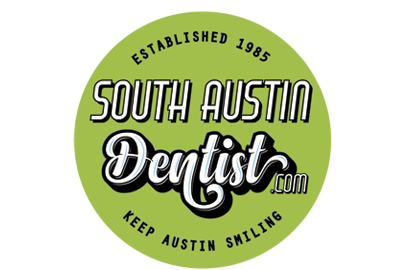Dinner tables will be crowded with friends and family this Thanksgiving, most of them smiling and happy to be together (hopefully). Many families, however, will also have to endure the presence of the black sheep—the one (or more) family member that always seems to cause trouble and tension, and most family members tolerate simply because they have to. Even if your family is blessed to be free of any black sheep, there will be plenty of guests around the table that you will not want there, and that will increasingly cause trouble as the night progresses. You can’t see these guests, but if you’re not careful, the damage they cause will leave no doubt that they’re there. Austin dentist, Dr. Steven Van Wicklen, introduces you to a multitude of uninvited and unwanted dinner guests—oral bacteria.
Who Invited the S. Mutans?
Of the more-than-600 different identifiable kinds of bacteria in your mouth, experts have singled out the strain Streptococcus mutans as the main cause of tooth decay. The strain earns this accolade by converting sugars and carbs, which are present in a wide variety of foods, into lactic acid, which erodes your tooth enamel. Every time you eat, S. mutans extracts its meal from yours and excretes acid onto your teeth as thanks. Tooth enamel is strong, in fact it’s the strongest substance your body produces, but it is not indestructible. The weight of continuous acid exposure will eventually make enamel too weak to repel oral bacteria, and when these germs reach the underlying layer of dentin (the main part of your tooth), decay and infection soon follow. Unfortunately, S. mutans inhabits the mouth, so you’re stuck with it like an annoying family member.
Feast on This, Mouth Germs!
Thankfully, living with S. mutans is manageable, and this holiday, you can even find help on the very same dinner table where the action will take place this Thanksgiving. In a ground-breaking study, University of Rochester microbiologist Hyun “Michel” Koo discovered S. mutans-fighting properties within the cranberry, a staple of many Thanksgiving dinners. Oral bacteria, including S. mutans, gain strength by creating a sticky biofilm called plaque, which holds them together and protects them. During his research, Koo discovered compounds within the cranberry that carry the capacity to inhibit S. mutans’ ability to create plaque. Without this sticky protection, the bacterium loses much of its effectiveness and is less able to produce enough acid to challenge your oral health. Koo warns, however, that you should not simply eat more cranberry sauce or drink more cranberry juice to prevent cavities. Many cranberry products also contain large amounts of sugar, or are combined with acidic elements, and over-indulging in these products can negate the fruit’s benefits to your teeth.
To learn more, contact your Austin dentist. You can schedule an appointment with Dr. Van Wicklen by calling 512-448-3131. Located in the 78704 area, we proudly serve the cities of Austin, Round Rock, Pflugerville, Bastrop, Bee Cave, Cedar Park, and all surrounding communities.







